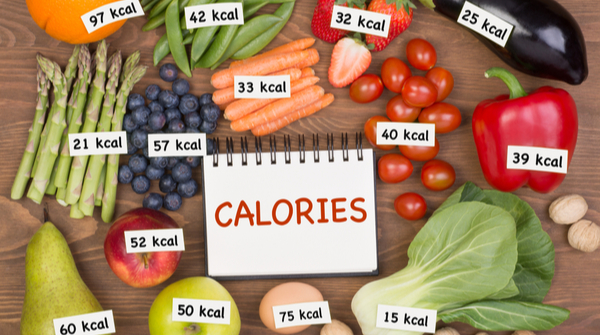Calories and carbohydrates (carbs) are both crucial elements of our diet, but they serve different purposes. Calories are a measure of energy and are essential for maintaining bodily functions and fueling physical activities. They can come from various sources, including carbs, fats, and proteins. On the other hand, carbohydrates are one of the primary sources of energy for our bodies.
They are broken down into glucose, which is used by our cells for energy. There are two main types of carbohydrates: simple (such as sugars) and complex (such as fiber and starches). While both calories and carbs are important for health, their balance and the quality of the source are key for maintaining a healthy diet.
Definition of Calories
Calories are a type of measurement used to determine the energy content provided by drinks and food items. In the context of nutrition, a calorie represents the amount of energy needed to raise the temperature of one kilogram of water by one degree Celsius. This energy is essential for the body to perform various functions such as breathing, circulating blood, and physical activity.

There are two types of calories:
- Small calorie (cal): Also known as the gram calorie, it represents the energy needed to increase the temperature of 1 gram of water by 1°C. This unit is small and not commonly used in nutrition.
- Large calorie (Cal): Also known as the kilocalorie (kcal), food calorie, or simply calorie in dietary contexts. It equals 1,000 small calories and is the standard unit used in food labeling. This is what people typically refer to when discussing the calories in food.
The body uses calories from food and drinks as a source of fuel. Consuming more calories than the body needs can lead to weight gain while consuming fewer calories than needed can lead to weight loss. Balancing calorie intake with physical activity is crucial for maintaining a healthy weight and overall health.
Definition of Carbs
Carbohydrates, commonly referred to as carbs, are one of the three main macronutrients in our diet, alongside fats and proteins. They are the body’s primary source of energy and are essential for the proper functioning of the brain, heart, and nervous system.

Carbohydrates are made up of carbon, hydrogen, and oxygen, and they are classified into two main types:
- Simple Carbohydrates: These are composed of basic sugars and are found in foods like fruits, vegetables, and milk. Simple carbs are quickly absorbed by the body, providing immediate energy. They include glucose (the main form of energy for the body), fructose (found in fruits), and lactose (found in milk).
- Complex Carbohydrates: These contain longer chains of sugar molecules and are found in foods like whole grains, legumes, and starchy vegetables. Complex carbs take longer to digest, providing a more sustained source of energy. They are also a significant source of dietary fiber, which is important for digestion and can help regulate blood sugar levels.
Carbohydrates are measured in grams and, when consumed, are either used for immediate energy or stored in the liver and muscles as glycogen for later use. The balance and quality of carbohydrates consumed are important for maintaining a healthy diet, as they can impact blood sugar levels, energy, and overall health.
Comparison table of Calories vs Carbs
Here’s a comparison table that outlines the key differences between calories and carbohydrates (carbs):
| Aspect | Calories | Carbohydrates |
|---|---|---|
| Definition | Unit of energy measurement in food. | One of the three main types of macronutrients is primarily used for energy. |
| Function | Measure the total energy content in food. | Provide energy, especially for the brain and muscles. |
| Types | Measured as kilocalories (kcal) or Calories. No subtypes. | Simple (quick energy) and complex (slow, sustained energy). Includes sugars, fibers, and starches. |
| Source | Derived from carbohydrates, fats, and proteins. | In foods such as grains, fruits, vegetables and dairy products. |
| Role in Diet | Essential for bodily functions and physical activities. Total calorie intake is crucial for weight management. | Essential for energy; impacts blood sugar levels and digestive health. Quality and quantity of carbs are important. |
| Measurement | Quantified as Calories or kilocalories (kcal). | Quantified in grams (g). |
| Storage in Body | Excess calories can be stored as fat. | Excess carbs can be stored as glycogen in muscles and liver, and as fat if in surplus. |
| Health Impact | Imbalance (excess or deficit) can lead to weight gain or loss, and affect overall health. | The type and amount of carbs can affect blood sugar levels, energy, and metabolic health. |
This table highlights the fundamental differences between calories and carbohydrates, focusing on their definitions, functions, types, sources, roles in diet, measurement units, storage in the body, and their impact on health.
Relationship Between Calories and Carbs
The relationship between calories and carbohydrates is a fundamental aspect of nutrition and energy metabolism in the body. Here’s how they are related:
- Source of Calories: Carbohydrates are a significant source of calories in many diets. Each gram of carbohydrate provides approximately 4 calories of energy.
- Energy Conversion: When you consume carbohydrates, your body converts them into glucose, which is a primary energy source for cells. This energy is measured in calories.
- Balancing Diet: For a balanced diet, it’s important to consider both the quantity and quality of carbohydrates, as they contribute to the total caloric intake. Consuming too many carbs, especially simple carbs with high glycemic indexes, can lead to an excess calorie intake, potentially resulting in weight gain.
- Carb Storage: The body can store carbohydrates in the form of glycogen in the liver and muscles. When these stores are full, additional carbs can be converted into fat and stored as adipose tissue, contributing to the body’s caloric reserves.
- Energy Use: During physical activity, the body primarily uses carbs (in the form of glucose and glycogen) for energy, especially during short and high-intensity exercises. The calories from these carbs fuel muscular activity.
- Dietary Considerations: In dietary planning, monitoring both caloric and carbohydrate intake is crucial for weight management and overall health. This includes considering the type of carbs (complex vs. simple) and their impact on blood sugar levels and satiety.
- Metabolic Processes: Carbohydrates impact metabolic processes such as insulin response and lipid metabolism. The balance of carbs and calories can affect metabolic health, influencing risks of conditions like diabetes and heart disease.
Carbohydrates are a key component of our diet that provide calories, or energy, for the body. The relationship between the two is essential in understanding nutrition, energy balance, and metabolic health.
Conclusion
Understanding the distinction and interplay between calories and carbohydrates is essential for a healthy diet. Calories provide energy, while carbs, available in various forms, are a key energy source. Balancing the intake of both is crucial for weight management, overall health, and disease prevention. Awareness of their roles and effects empowers us to make informed dietary choices, leading to a healthier lifestyle.


